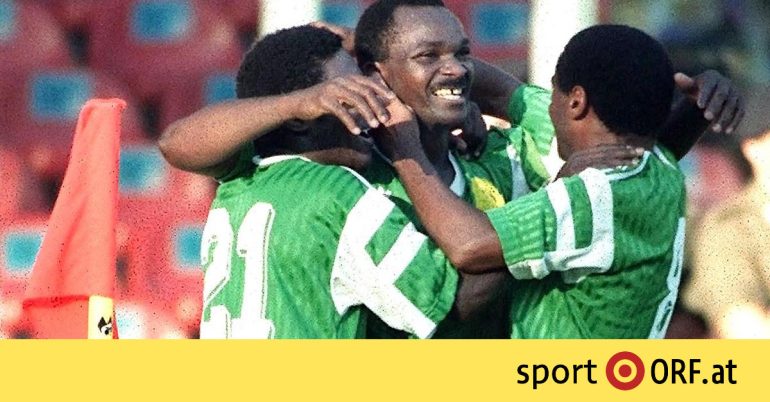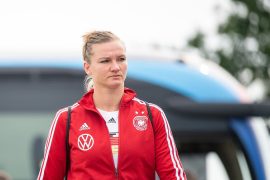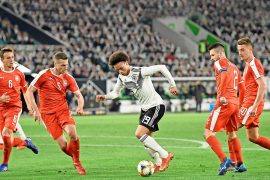Senegal and Ghana missed out on the semi-finals in 2002 and 2010 respectively, and the chances of an African surprise at the World Cup in Qatar again seem slim. Cameroon is back, along with Ghana, Senegal, Tunisia and Morocco.
The quintet wants to avoid a repeat of the World Cup that took place in Russia four years ago. Thereafter, all African teams failed after the group stage. Too inexperienced, cleverly undisciplined and fixated only on his stars were accusations that have been repeated over the years.
Lack of starting points, lack of infrastructure
Several attempts have been made to explain why the highlight has not happened until now. African critics attribute this to the FIFA system. Continental football confederation CAF has 54 members, but only five places to start the World Cup. Europe has 55 member nations and is allowed to send 13 teams to the World Cup, South America has 4.5 starting places with ten starting players. For Cameroonian Patrick Mboma, Africa’s Footballer of the Year 2000, it is unfair and puts him at a disadvantage.
Mboma told Al Jazeera shortly before the start of the World Cup, “The favorites are always the same because they are the ones who have more experience in the history of the World Cup.” From Africa, big-name teams such as Mohamed Salah, Nigeria, Ivory Coast, Algeria and Egypt were left behind this year.
Aaron Mokoena, captain of South Africa’s 2010 home tournament, also believes it is important for good African teams to compete more often with the best in the World Cup. “But before we ask for additional spots, we need to organize our football,” Mokoena said. He cited lack of infrastructure as a major issue in many countries, but also lack of development. After all, more and more players are making the leap to Europe, according to the former Ajax and Leverkusen legionnaire.
Bad failure for Senegal
A prime example is Sadio Mane, whose career began at Wals-Siegenheim. The Senegal star moved to France at the age of 19, via Metz and Salzburg via Liverpool and Bayern Munich. But now Africa’s Footballer of the Year has been sidelined with an injury earlier this month and the Lions of Teranga will be a prime candidate for a turnaround. At least second place in the group with hosts Qatar, Ecuador and the Netherlands looks possible. Senegal will play their first match against Oranje on 21 November.
The current Africa Cup of Nations champions are a fine example of positive developments on the continent. You think long term. Team boss Aliu Cisse, in office since 2015, had his contract extended until 2024 before the World Cup. The national federation is also looking to fill the contingent of available players with French-born talent of Senegalese parents. This applies to goalkeeper Édouard Mendy, defenders Kalidou Coulibaly (both Chelsea) and Abdou Diallo (RB Leipzig) and midfielder Pep Gueye (Marseille).
“We stayed focused on the really important things. We are getting closer to our goal with each tournament, and the last tournament strengthened our belief. Referring to the victory at the Africa Cup of Nations in February, Cisse said, “Hard work always pays off.” The first target in Qatar is to get out of the group. “After that it is a knockout tournament and we have enough experience to make a mark,” said the 46-year-old former international.
Quartet with a hard draw
Cameroon, along with former Altchers Samuel Oum Gouet and Nicolas Moume Ngamaleu, will have a tough time in a group with Brazil, Switzerland and Serbia. The same goes for Ghana against Portugal, South Korea and Uruguay. Morocco has Belgium, Croatia and Canada as rivals, Tunisia has to compete with France, Denmark and Australia in the pool. The grapes seem to be hanging high once again for teams in Africa.
Teams were able to announce premierships even before the start of the World Cup. All five team bosses are from their home countries, along with Cisse, Rigobert Song (Cameroon), Otto Addo (Ghana), Walid Regargui (Morocco) and Jalel Kadri (Tunisia). For decades it has almost always been the case that European or South American were preferred to domestic coaches.

Web guru. Amateur thinker. Unapologetic problem solver. Zombie expert. Hipster-friendly travel geek. Social mediaholic.





